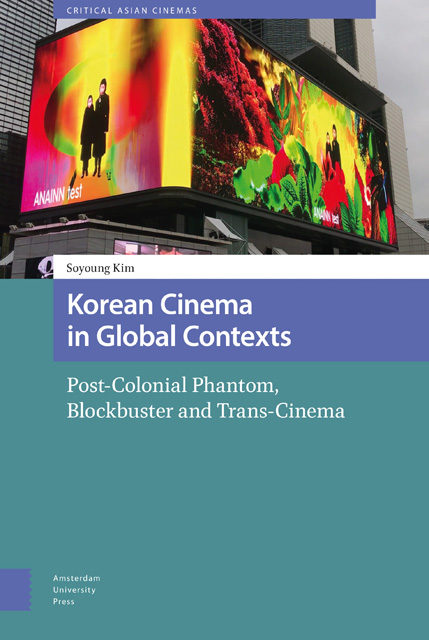1 - Cartography of Catastrophe : Precolonial Surveys, Postcolonial Vampires and the Plight of Korean Modernity
Published online by Cambridge University Press: 16 November 2022
Summary
Abstract
This chapter looks across three centuries at the trajectory of South Korean cinema from its contentious emergence in 1897 to its current global dissemination (as of 2011). The cinemas of the precolonial Great Han Empire (1897-1910) and the contemporary postcolonial Republic of Korea (1948-) are compared and the negotiations between the national and the transnational, which have run from the catastrophic to the cartographical as South Korea maintains a state of emergency, are discussed.
Keywords: phantom cinema, cultural genocide, Park Chanwook's Bakjwi (Thirst, 2009), cinephilia, topophilia
Two Trajectories of Phantom Cinema
The demon of comparison between the Great Han Empire (1897-1910) and the contemporary postcolonial Republic of Korea (1948-) might sound anachronistic, but it entails encrypted fear, fascination, and the criticality of modernization and globalization. The uncanny pairing of the two periods unveils a perilous, but at times surprisingly prosperous, passage of a troubling “national” cinema, instanced both in precolonial and postcolonial Korea. This kind of historical pairing will expose the uncanny resemblance and effervescent differences in negotiation where “the enervating mobility prevent[s] one from ever stopping,” leading to “[t]he impossibility of stopping, […] a perpetual suspension, a suspension without rest” (Derrida 2002, 13).
This research joins the studies on the relationship between the emergence of film and the broader culture of modernity by privileging the moment and the space of negotiation in precolonial Korea before the Japanese annexation. In doing so, it also draws attention to the intricate, formative connection among screen practices, speech and the public (manmin). I would also like to locate the practice of public speech in the problematic historiography of South Korean film, which has constructed early “national” film history on vanished, lost and rumoured films of colonial times. It has formed a phantom canon of a fantasmatic unity known as Arirang.
According to Žižek, the phantom, the “object-impediment,” plays an ambiguous role of guaranteeing fantasmatic consistency (Žižek 2001, 128). The phantom object, the phantom Arirang, in fact, ensures fantasmatic consistency not only for postcolonial Korean society but for the two Koreas – South and North. It, however, exposes a hole, a rupture, and a discontinuity which encourages re-examining the episteme of cinema in Korea.
- Type
- Chapter
- Information
- Korean Cinema in Global ContextsPost-Colonial Phantom, Blockbuster and Trans-Cinema, pp. 25 - 42Publisher: Amsterdam University PressPrint publication year: 2022



